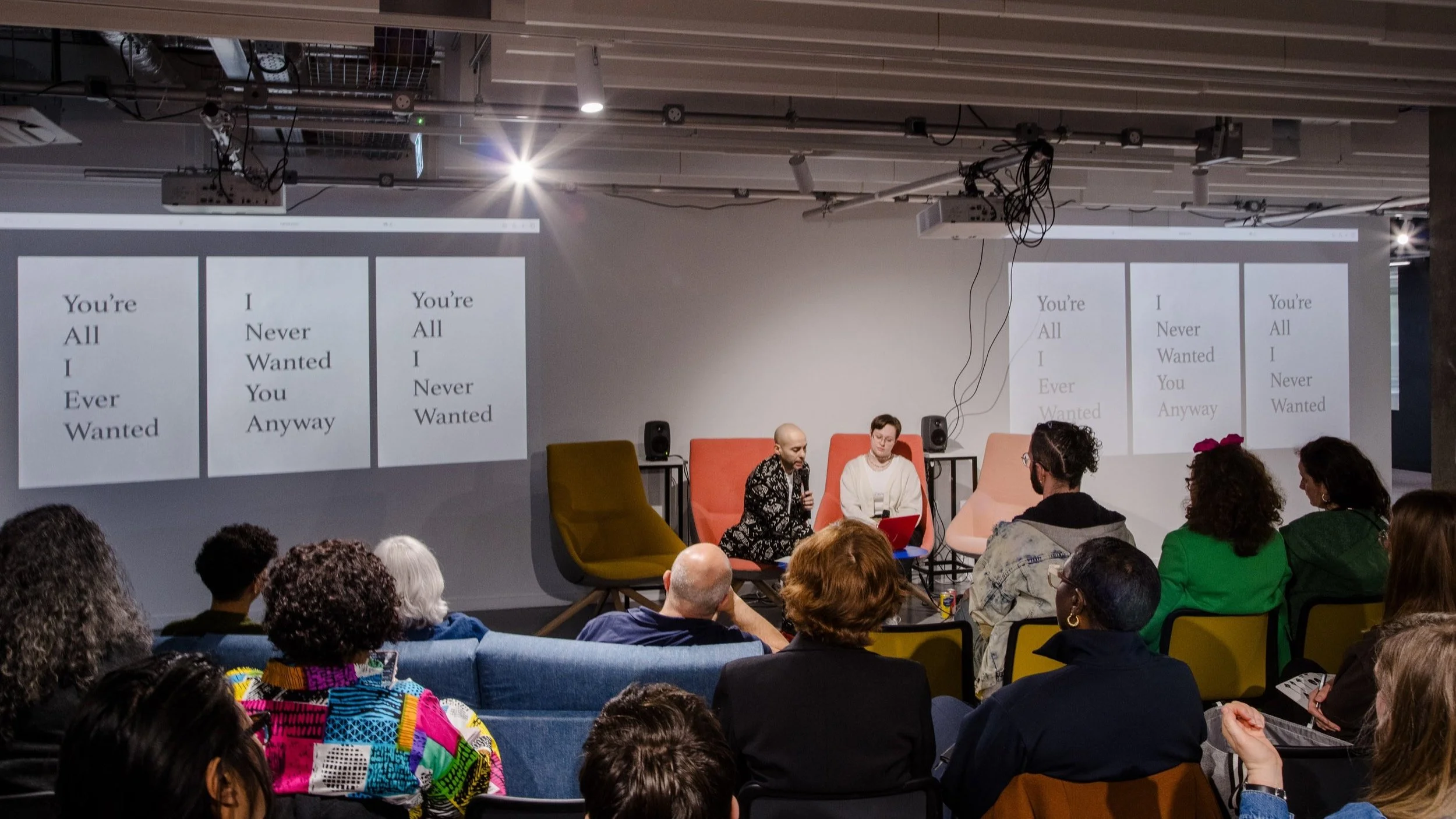(be)longing Conference
This entry is about my on-going project (be)longing which looks at themes of race, heritage, transracial adoption and estrangement. Click here to read all of the posts on this topic.
The final event as part of my initial public programme with Bethlem Gallery for the (be)longing project was a full day conference in South London. Taking place at University of the Arts’ new Hub space in Peckham, I curated a series of screenings, talks and creative workshops looking at creative approaches to the theme of belonging from diverse perspectives. We had a great turn out.
You can see the programme here.
Alexandra Stenberg’s film, Egoist
Artist Alexandra Stenberg screened their film Egoist, a deeply personal film about their experience of family estrangement. Following this I shared some of my own developing work around estrangement, and was in conversation with Alexandra. It was the first time I had publicly spoken about the work (outside of what I share here in my reflections) and felt nerve-racking and exposing at times. I think so often I’m not around other people who have experience of estrangement that I can feel like an alien talking about what it’s like to exist on an island. In many ways I’m looking forward to running workshops at Queercircle later in the year for estranged people, to be around others who may have had similar experiences to me.
Discussion with Alexandra Stenberg
Following this we had a session on Belonging to Self & Others with a panel of 3 artists sharing their complex relationships to the self and others and how it has impacted their sense of belonging. Africa Barrero-Alexander shared his work This Body Was Carved From Stone, a photography project documenting their medical transition. Michelle Rodrigues explored the theme of belonging through the lens of invisibilised histories shaped by displacement and the erasure caused by colonisation. Viktoria Binges shared her work Patient, reflecting on her emotional and challenging journey following a brain tumour diagnosis delivered by post in 2018.
Panel: Belonging to Self & Others
To mix up the day I also curated a series of taster workshops that participants could sign up to experience. These included:
A poetry workshop on the language of belonging with Gayathiri Kamalakantha.
A game and play workshop reflecting on gratitude to our bodies with Sue Mayo.
A visual arts workshop exploring ideas of home with art psychotherapist Sama Hunt.
A mapping workshop exploring our relationship to place with Jemilea Wisdom-Baako.
Alongside these workshops we also had psychological support throughout the day and during the workshop sessions provided by artist and psychotherapist Stephen Rudder.
In the final session a panel focused on Belonging to Community from an organisational perspective. Sophie Leighton, Director of Bethlem Gallery shared the unique role that the gallery plays on the site of a psychiatric hospital, and the tensions of working alongside or in parallel with the healthcare system. Frances Williams, health and research lead at Queercircle discussed the role of an institution to be malleable to the needs of those that it serves. And malakaï sergeant from BORN::FREE spoke about the rejection of organisational structures and subverting traditional ways of working.
Frances Williams from Queercircle
There was so much to take away from the day from what was shared by the speakers and conversations that I had with attendees. One of the things I was struck by - and continue to be - is this process as a different way of working than I am used to. When I am making personal works I often operate in a very insular way, and that can be quite emotionally intense and lonely.
By creating a public programme and inviting others in to go on this journey with me, it’s not only introduced me to other people who are making fascinating work from different perspectives, and created paid opportunities for other artists, it’s also made me feel more connected to community and less alone.
I’ve been mulling over how to continue this way of working when creating major bodies of work, and figuring out productive working practices that support me to create work for exhibitions. I have been thinking about how I could replicate this model of informal research through a public participatory programme to not only compliment and influence the work that I make, but in order to feel less isolated and connected to others who have a vested interest or shared experience in something that can be terribly heavy in content.














